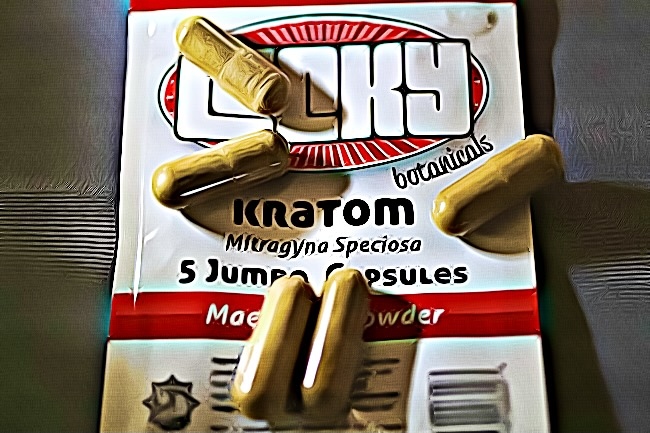Although many people use Kratom to relieve opiate withdrawal symptoms, did you know that it may also trigger a withdrawal? Kratom is a herbal supplement derived from the leaves of Mitragyna speciosa, a tropical plant native to Southeast Asia. Kratom includes potent alkaloids with stimulating side effects such as mood enhancement and pain relief. Many people get dependent on Kratom after using it for an extended period, which can produce withdrawal symptoms when their use is lessened or stopped entirely. We’ll look at these symptoms and the frequently asked question, “How long does Kratom withdrawal last?”
What Is Kratom and What Does it Do?
Kratom is produced from the plant Mitragyna speciosa and is usually offered as a nutritional supplement in tablet or powder form or as incense in head shops. However, in recent years, the FDA has ordered the seizure and destruction of kratom and kratom-containing supplements and has warned consumers not to use any items branded as containing kratom. This is owing to concerns about the toxicity of kratom in the human body, which has resulted in seizures in rare cases and the potential for abuse.
Like any other medication, Kratom’s effects vary considerably depending on the amount consumed, the concentration, how the kratom was consumed, and any underlying medical issues an individual may have. Smaller dosages of kratom provide stimulant-like effects, which may raise energy levels and alertness while combating weariness. Those who use kratom in greater amounts describe opioid-like sedative effects and psychotic symptoms.
An individual must fulfill particular diagnostic criteria to be diagnosed with a drug use disorder, a medical illness defined by the obsessive use of a substance despite negative effects. The “Diagnostic and Statistical Manual of Mental Disorders, Fifth Edition (DSM-5)” criteria used by doctors and other healthcare professionals do not provide a formal diagnosis for kratom. However, some specialists are concerned about the drug’s addictive potential since the major kratom components, mitragynine and 7-hydroxymitragynine, partially activate the same brain receptors as other substances with documented addictive tendencies. 4 Other researches have reported that the way kratom affects these receptors may lower the likelihood of addiction.
Some people claim to have used kratom to alleviate the withdrawal symptoms and cravings associated with other substances, notably opioids.
However, there is no scientific proof to back up these assertions, therefore they are entirely anecdotal at this point.
Signs and Symptoms of Kratom Withdrawal
The FDA determined that kratom contains opioid components using modern computer modeling. Just like someone who takes opioids on a daily basis would suffer withdrawal, someone who uses kratom regularly will experience kratom withdrawal when they stop using it.
According to research, those who ingest significant amounts of kratom multiple times per day are more likely to have moderate to severe withdrawal symptoms than those who consume lesser amounts of kratom.
Withdrawal from kratom is similar to withdrawal from opioids. Some research, however, finds that kratom withdrawal is often shorter in length and has fewer severe symptoms than opioid withdrawal.
According to reports, kratom withdrawal is different for everyone. In one poll, most users rated their kratom withdrawal symptoms as a 2 or 3 on a scale of 1 to 5, with 1 being the most severe and 5 being the mildest. Fatigue, cravings, tremors, and muscular pains are all common symptoms.

However, more study is needed on the long-term consequences of continuous kratom usage, which is likely to exacerbate withdrawal symptoms.
Among the most often mentioned kratom withdrawal symptoms are:
- Anxiety
- Cramping
- Cravings
- Depression
- Diarrhea
- Fatigue
- Flashes of heat
- Insomnia
- Muscle pain
- Vomiting or nausea
- Agitated legs
- Nosebleed
- Sweating
- Tremors
- swollen eyes
How Long Does a Withdrawal From Kratom Last?
The symptoms of kratom withdrawal may vary depending on how long you used the substance and how much of it you used. According to surveys conducted in the United States and Malaysia, symptoms of kratom withdrawal often begin between 12 to 48 hours of your last dose5 and normally fade within 3 days. According to one research, symptoms may linger between 3 and 10 days. If you took a higher dose of kratom for a long period, your symptoms may last longer.
Tips For Relief from Withdrawal Symptoms
While the symptoms of kratom withdrawal might be unpleasant, they are typically manageable at home.
Here are some ideas to get you started:
- Take a pain reliever that is available over-the-counter (OTC). Acetaminophen (Tylenol), aspirin, and nonsteroidal anti-inflammatory medicines (NSAIDs) such as ibuprofen can all help with muscular pains and fever.
- Keep hydrated. Dehydration can occur due to vomiting, diarrhea, or heavy perspiration. To help restore lost water and electrolytes, drink lots of fluids, especially water, and a rehydrating product like Pedialyte.
- Take an over-the-counter antidiarrheal medication. To stop diarrhea, use an over-the-counter antidiarrheal medication such as Imodium or Pepto-Bismol.
- Consume light, regular meals. Eating small, frequent meals and following a bland diet might help with nausea and vomiting and relieve stomach discomfort.
- Take an over-the-counter antiemetic. Antiemetic medications such as Gravol, Dramamine, and Pepto-Bismol can help alleviate nausea and vomiting. Ginger tea and candied ginger may also be beneficial to your stomach.
- Get plenty of rest. Try to get a full night’s sleep and take a nap throughout the day if you feel the need. This may help alleviate any irritation or anxiety you are experiencing.
- Use both heat and cold. Muscle aches can be relieved by using heat and cold.
- Try some relaxing methods. Breathing exercises, meditation, and yoga are just a few of the tried-and-true approaches for reducing pain, anxiety, and sleeplessness.
- Engage in hobbies and interests. Engaging in enjoyable activities might help keep you engaged and your mind off your withdrawal symptoms. Make sure you have books, movies, music, and puzzles on hand.
- Speak with a buddy. Talk to a friend or family member, or invite someone over. Emotional support can assist you in coping, and spending time with someone you enjoy can also be a wonderful diversion.
Long Term Recovery From Kratom Addiction
Kratom addiction treatment requires the integration of both medical and therapeutic techniques in an organized drug abuse rehabilitation program. Underlying physical or mental health conditions and environmental variables such as chronic stress, early trauma, and other external pressures can all play a role in kratom addiction. As a result, to achieve long-term recovery, these critical aspects must also be addressed in long-term treatment.
Therapy and counseling are provided in a residential or outpatient setting as part of the long-term treatment approach. Cognitive-Behavioral Therapy (CBT) is a proven therapeutic strategy in addiction therapy that assists clients in identifying the underlying reasons or possible triggers of their illness. By addressing problematic thinking patterns and low self-esteem, CBT assists people in changing potentially self-destructive behaviors.
Counseling may include both family and individual sessions to explore and improve communication skills. Support groups and 12-Step programs can be part of ongoing or aftercare support services, and they can help with recovery by developing healthy relationships among people in similar situations.
Conclusion
Kratom withdrawal is typically mild compared to the effects of opioid withdrawal. Most users experience mild symptoms, and long-term complications have not been well studied. However, Kratom is not a drug that should be taken lightly, and it is important to understand its potential for abuse and addiction. Treatment for kratom addiction requires the same dedication and commitment as any other substance use disorder.
Sources:
https://www.ncbi.nlm.nih.gov/pmc/articles/PMC6612999/
https://www.ncbi.nlm.nih.gov/pmc/articles/PMC7203303/
















